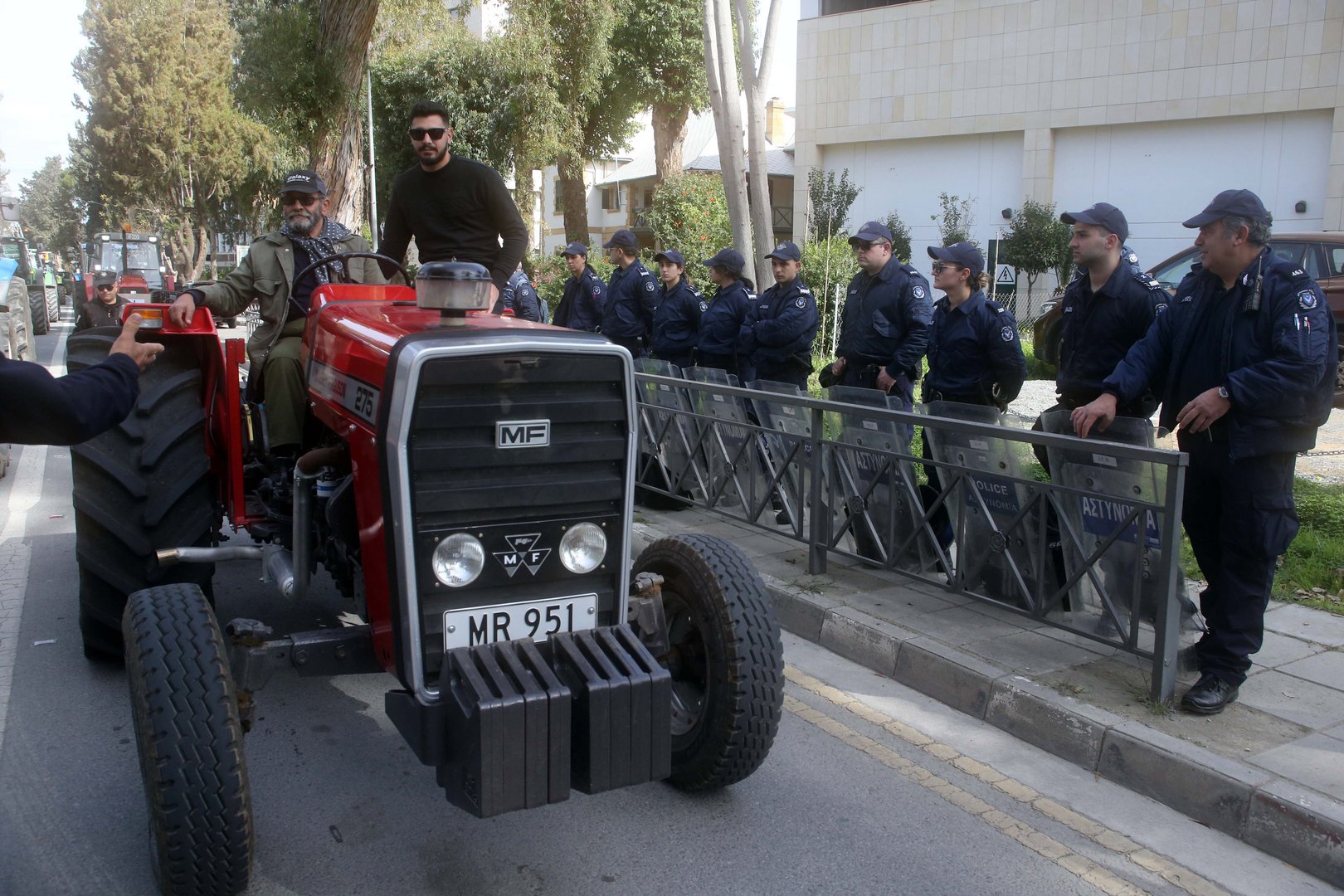Agriculture Minister Maria Panayiotou is to hold weekly meetings with farmers’ unions with the aim of putting together a common policy document to submit to President Nikos Christodoulides by the end of March.
The plans were announced following a meeting between Panayiotou and representatives of farmers’ unions on Friday.
She referred to the government’s pledge to increase the agriculture sector’s size as a proportion of Cyprus’ gross domestic product (GDP), with Christodoulides having said in December that he aims for the sector to produce five per cent of Cyprus’ GDP.
Speaking in poetic terms about the meeting, she said “yesterday, I was on the end of rage. Today, I deliver to the farmers’ unions olives of our Cyprus, olives of hope, olives of abundance.
“Just as our Cypriot olive tree grows and develops in even the most barren areas, so may the dialogue have started for the good of our agricultural sector to take root,” she said.
She then handed olive saplings to the farmers’ union representatives.
Pursuant to that, she touched on the 14 points listed in the farmers’ demands, disclosing that they had asked for simplifications of the European Union’s Common Agricultural Policy procedures, a discussion on the risk-management framework, and a re-evaluation of planned environmental measures.
She added that the farmers had wished to open discussions related to matters such as fishing, taxation, funding issues for applied research, and other wider issues which impact Cypriot farmers.
Asked if she would request something specific for Cypriot farmers during her scheduled trip to Brussels, she said some of the 14 points can be raised and discussed at a European level, while others are “purely local”.
Speaking after the meeting, Panagrotic chairman Kyriakos Kailas thanked Panayiotou for her “immediate response”.
He expressed his satisfaction that she had “listened very carefully and taken account of the problems,” and noted his confidence that they will be met with “rapid resolutions”.
He said the problems farmers’ unions highlighted to Panayiotou are “problems people live with every day and have become even more difficult to deal with in this new state of affairs.”
However, he said, “the minister has understood them … so that the best possible result can be found for Cypriot farmers to stay in the place they were born and in the place they cultivate to offer their goods to the world.
“However, at the same time, Cypriot farmers should also have bearable incomes. They will never be millionaires, but at the same time, they should not be losing money every day,” he said.
Farmers in both Nicosia and Paphos had taken to the streets on Thursday, incensed by new environmental regulations and trade agreements allowing for cheap imports of produce to undercut European farms.
In Nicosia, farmers gathered outside the European Union House, handing out fruit to passersby, and submitting a note with their demands to the European Commission.
Panayiotou had said on Thursday that the government “stands together with farmers and not against them,” adding that they are “constantly exchanging views with farmers’ unions”.
Additionally, she had said €354 million of government funds had been allocated to support farmers.
She had later said farmers’ demands will be “taken into account” after their demands were also submitted to President Nikos Christodoulides.
“The government, through its participation in various EU institutions, is submitting the positions of our farmers – the positions we have as the Republic of Cyprus – while holding the common goal of safeguarding the European farmer,” she said.
Farmers’ association general secretary Tassos Yiapanis had said at the protest that demonstrators were demanding “substantial” financial support to be able to deal with increased production costs.
His words had echoed those of farmers at a protest in the Paphos district on Saturday, when farmers’ union Pek’s Paphos district secretary Charalambos Pittokopitis said “the agricultural world of Cyprus, and in particular of the Paphos district, is on the brink of destruction.”
“We have very high production costs and very low retail prices,” he said, adding that delays in payments have exacerbated the losses farmers have suffered in recent years.
Herodotos Antoniades, Paphos district secretary of farmers’ union Eka, said farmers across Paphos are “leaving the profession one by one” due to ever stricter environmental regulations and increasing production costs.
He added that young farmers are “not being incentivised to stay in the profession”.
Farmers’ unions had earlier out a joint statement, saying “the situation has gotten out of hand. The cost of production is unreal. Green taxation is imposed on water, land, animals, trees, plants, seeds and in general on the whole food chain.
“At the same time, the EU is proceeding with a trade agreement with Latin American countries for the import of agricultural products that do not meet European quality standards, also promoting unfair competition,” they lamented.
The protests in Cyprus reflect a wave of disquiet among farmers across the European Union, with farmers from across the continent having descended on Brussels and also taken part in various protests across multiple member states.
The Dutch-Belgian border was briefly blocked, roads in Greece were occupied, and Polish farmers made plans to close border crossings with Ukraine.







Click here to change your cookie preferences